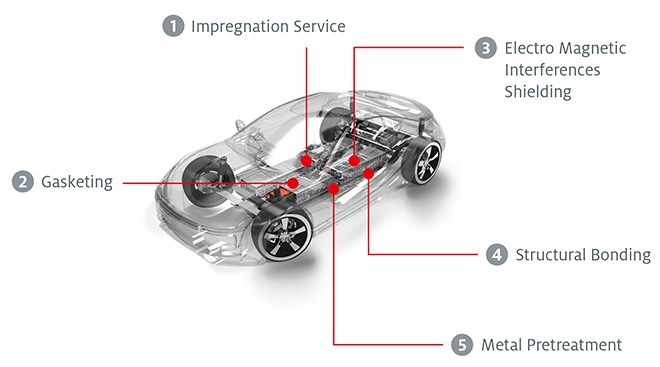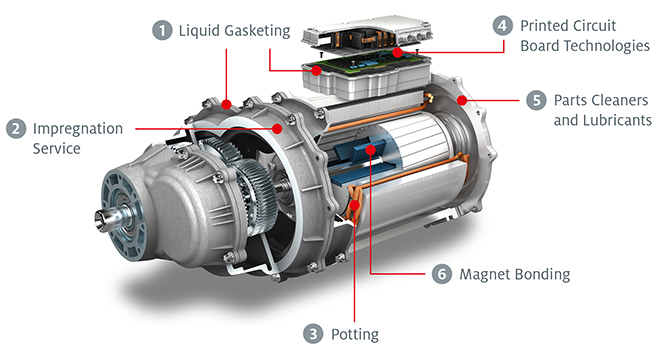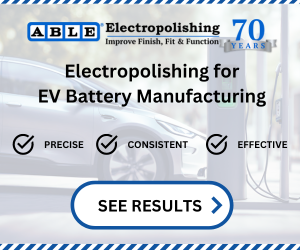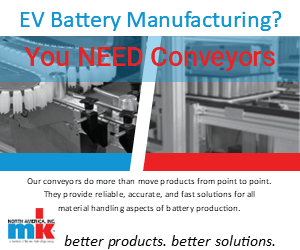Engine and powertrain specialist Henkel aims to solidify its e-mobility commitment by investing in several new EV-oriented manufacturing processes. Henkel has chosen to focus on developing several adhesive and liquid gasketing materials as well as PCB technologies, part cleaners and lubricants. Here’s the breakdown:
- Liquid gasketing: Henkel offers a wide range of different gasketing technologies. Recent product innovations include Loctite AA 5820, which is especially suitable to provide a reliable seal of multi-substrates or any flange design of e-drive housings. The polyacrylate adhesive shows excellent resistance to oils, including automatic transmission fluids (ATF), and can withstand temperatures from -40° C to +150° C.
- Potting: Another polyacrylate technology – Loctite AA 5831 – is used for protection and fixation of parts in the e-motor or in the conversion electronic control unit. The compound has an ideal fit in large-series potting operations and cures within seconds under UV light and moisture. For e-drive stator coil potting applications, Henkel offers the two-component epoxy technology of Loctite PE 8082, which has a thermal conductivity of 1 W/mK, resulting in a significantly reduced working temperature. In addition, it shows outstanding oil resistance.
- PCB technologies: Printed circuit board solutions include conformal coatings, thermal interface materials, low-pressure molding products, and next-generation solder technologies for e-drive power conversion control units.
- Impregnation service: Henkel’s Loctite Impregnation Solutions (LIS) service leverages the flowability of low-viscosity polymeric resin to fill micro-porosities and voids (“leakers”) and permanently seal components, such as aluminum cast e-drive housings, against common automotive fluids. The company operates 30 LIS Service Centers worldwide, which are fully certified to IATF 16949, ISO 14001 and OHSAS 18001.
- Magnet bonding: Loctite EA 9497 is used for the bonding of magnets inside the e-motor. The two-component epoxy adhesive has proven its long-term reliability in this application segment, combining a wide operating temperature range of -55° C to +200° C with high mechanical strength as well as good chemical and oil resistance. With its added thermal conductivity, it also supports more efficient thermal management.
- Parts cleaners and lubricants: Henkel’s range of machining products along with parts cleaners help to maintain a cleaner part through the entire process to ensure tight tolerances and reduce residues on parts, especially when used on sensitive e-drive modules.


“As all major OEMs and new players in the automotive industry are launching more and more full hybrid and battery-electric vehicles, there is a need for seamlessly matching technologies designed to support these new drive concepts and manufacturing schemes. With our innovative adhesive solutions, we are ideally positioned as a full-service partner of customers at the forefront of e-Mobility,” says Henkel executive Frank Kerstan.
While Henkel develops better adhesive and potting materials, other companies are eager to advance the equipment that dispenses them. Glue guns have never been more expensive.
Source: Henkel




















































